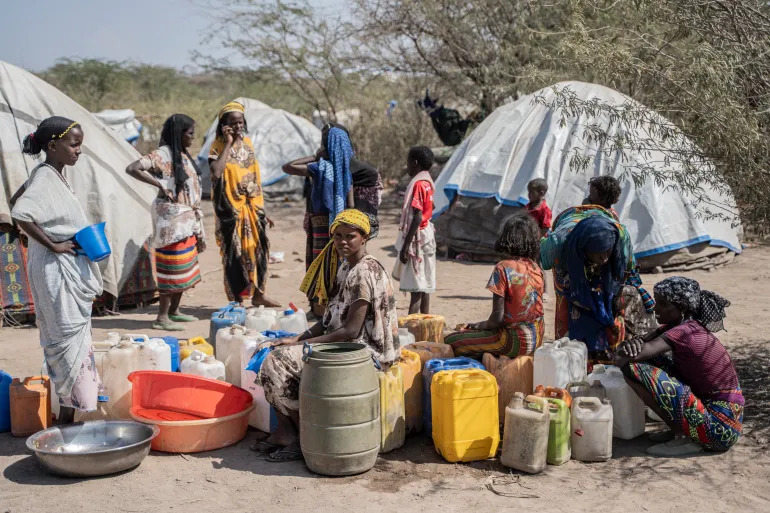For thousands of Ethiopian mothers, this week brought devastating news.
The World Food Programme (WFP) has stopped providing treatment for malnutrition to 650,000 women and children, a move that could cost lives as families already struggle with hunger and displacement.
Zlatan Milisic, WFP's Country Director in Ethiopia, said the organization has been forced to take the difficult step due to a lack of resources.
With commodities exhausted and funding dried up, the agency could no longer continue its programs in many parts of the country, including in regions that have faced the worst of the country’s crises.
"We’ve been left no choice but to this week suspend treatment for 650,000 malnourished women and children — simply because we’ve run out of commodities and funding," Milisic said from Addis Ababa in a briefing to journalists in Geneva.
For families already pushed to the edge by war and weather disasters, the sudden halt has come as a shock.
Across Ethiopia, especially in the northern regions of Tigray and Afar, mothers are now being turned away from health centres that once offered a lifeline to their malnourished children.
The WFP’s programs were supporting communities battered by years of hardship.
Ethiopia has seen its food crisis deepen after the 2020–2022 civil war in Tigray and the worst drought in the Horn of Africa in decades.
The impact has been felt hardest by women and children, particularly those displaced from their homes or fleeing violence.
Milisic explained that while some exemptions from U.S. aid freezes have helped in the past, the agency has received little for 2025 so far.
Most of WFP’s donors have reduced their contributions this year, leaving essential programs hanging in the balance.
The decision to suspend services, Milisic said, followed earlier cuts to food rations.
"Our operations are now at breaking point," he said.
A WFP spokesperson noted that the agency is trying to raise new funds urgently. Without them, the situation could deteriorate even further. An estimated 3.6 million people could be cut off from assistance by June.
"I would hope that we will get the resources and put in place measures to really do our best to assist them. But if they don’t receive assistance, we will have serious consequences," Milisic warned.
In many parts of Ethiopia, the consequences are already becoming visible.
Health workers say attendance at clinics has dropped, not because the need has disappeared, but because people know there is nothing left to offer.
Mothers return home with empty hands, unsure of how to keep their children alive.
The crisis in Ethiopia is not just about numbers — it's about people.
Each of the 650,000 affected by this suspension represents a child needing help or a mother trying to save her family.
As funding dries up, so too does their hope.

